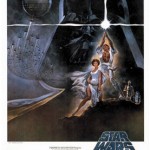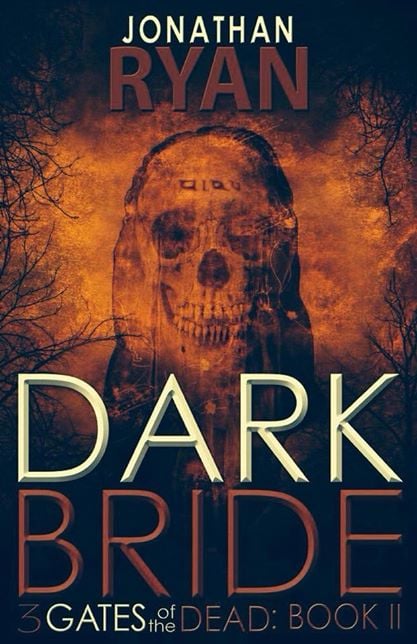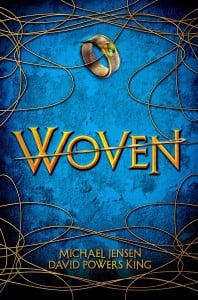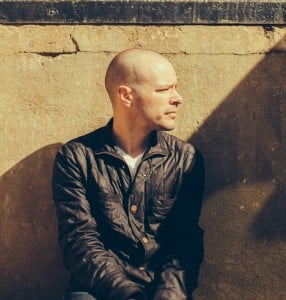 I’ve been a Derek Webb fan for years, having been drawn in by his willingness to wrestle through tough questions and creatively confront various cultural and religious issues in his songs that many artists of the same ilk seem to try and avoid. It also doesn’t hurt that the guy’s a tremendous songwriter and performer. Over the past decade, he’s released ten solo records to go along with his large volume of work in Caedmon’s Call before that.
I’ve been a Derek Webb fan for years, having been drawn in by his willingness to wrestle through tough questions and creatively confront various cultural and religious issues in his songs that many artists of the same ilk seem to try and avoid. It also doesn’t hurt that the guy’s a tremendous songwriter and performer. Over the past decade, he’s released ten solo records to go along with his large volume of work in Caedmon’s Call before that.
When I was given the opportunity this past summer to join a launch team Derek was putting together to help with the promotion of his newest album, I Was Wrong, I’m Sorry & I Love You, I jumped at the chance. To boot, Derek even agreed to kick off the Apology Tour in support of his new album at my church in Philadelphia, which turned out to be a spectacular show, attended by a room full of rabid die-hard fans. Derek was kind enough to sit down with me recently and share a bit about his career, his personal interests, and some of the work he’s doing on behalf of other artists.
AA: You titled your new album I Was Wrong, I’m Sorry & I Love You. It seems like such a confessional. Is there anyone in particular you’re saying that to? Or is the meaning behind that title supposed to be somewhat mysterious?
DW: Throughout the record, there are moments where I would intend it for particular people or groups, but on the whole, the title always felt a little more like modeling a posture for people. Those are the three things, growing up, that I heard you had to learn to say to anybody to keep any relationship together; be that in business, personal relationships, the church, or anywhere. And with the church being as complicated a group of people as it is, the fact that we don’t have anything in common other than our need and our sickness, the only reason we gather is to be healed and to be made well from all the ways that we’re sick. So, church is like an AA meeting, and if it’s not like an AA meeting, we’re not doing it right. That said, if the only thing we have in common is our sin and sickness, it’s no wonder we bicker, fight, divide, and disagree. And so, of all places and of all moments, this is a moment where we as the church really need to learn how to say those three things to each other. We need to learn how to look at each other and all of our diversity and confusion and division, and say those three things to each other. And if we can manage to do that, then we need to learn how to say those three things to everybody else, because imagine how restorative and healing it would be for people in culture who have been at the business end of the church’s judgment on one issue or the other, to hear from us in ways that are not morally compromising, but ways that are appropriate. To go to those people and say we were wrong, we’re sorry, and we love you. That would be an incredibly restorative and disruptive thing in terms of people’s views on Christianity and Christians.
AA: My favorite lyric from the new album is from the song “Everything Will Change” where you say “One day you’ll wake and the curse will break and even you won’t be the same. Your hope is not wasted on the day when everything will change.” When you talk about the curse breaking I’m reminded of the lyrics to your song “This Too Shall Be Made Right” [from 2007’s The Ringing Bell]. To me, it almost sounds like a sequel song. Did that ever enter your mind as you were writing “Everything Will Change?”
DW: Absolutely. I was immediately aware that there was a pattern emerging there. Some people look at a song like “This Too Shall Be Made Right” as a real downer because, depending on how you look at it, the verses were the things that I see when I look at the world that are broken and are grievous to me. But then the refrain of it is “but this too shall be made right.” I feel like I could continue writing that song every year and each time it would be a little different. But you can’t have enough songs about that. The thing that keeps and restores my sanity is believing that that’s true; especially me, as a cynic. The nuance of re-writing that song, in this case, was focusing it on my cynicism; my disbelief that there is hope for particular things or for particular people. The way that I so easily give my cynicism to situations – and therefore withhold my hope for change in particular situations – is just incongruent with what I believe about the day coming when all things will be made right. The two just can’t stand together. I’ll probably write that song several more times in my career, nuancing it differently. I feel like “This Too Shall Be Made Right” is more about the things I see when I look at the world and “Everything Will Change” is more about me.
AA: Along those lines, you’ve mentioned that I Was Wrong is something of a follow up to your first album [2003’s She Must and Shall Go Free]. Could you explain why that is?
DW: My first record, which came out a little more than ten years ago now, was a record about the church, which was a very intentional thing on my part. Since then, I’ve really enjoyed exploring and getting really deep into certain issues and content and using my gifts for disruption and bringing those things to bear on various things that I see when I look at the world. That said, it just felt like on the ten-year anniversary of my first record, I started to reminisce about the questions I had asked ten years ago that led to the writing and recording of that record. Questions like, “Do I necessarily have a role in the church, and does the church necessarily have a role in culture? And if so, what are those roles and how does that work and play out?” Because I had questions ten, eleven years ago, having spent ten years prior in Caedmon’s Call touring around in church culture. I’d heard a lot of opinions about the church and so I had all these questions which led to my first record. And as I was coming up on the ten-year anniversary of that record, I started to think about the things that change and the things that don’t change in ten years. Earlier this year, I did a ten-year anniversary tour of my first record with a buddy of mine who worked on that record with me and we played my entire first record every night. And the fact that I could still sing every word of every one of those eleven songs and agree with every word of them, even in light of everything I’ve been through in the last ten years, was a real gift. But then also realizing, there’s a lot that does change in ten years. So, I started to think about the questions I’d asked myself ten years ago that led to that record and how I’d answer those questions differently today. And next thing you know, I’ve got twelve songs answering those questions; those same questions that my first record answered ten years ago. And so for that reason, that’s why it feels very much like a sibling or a follow up to that record.
AA: How’s the Apology Tour going?
DW: The shows have been really good and I’m grateful to have songs on the new record that I can actually play on guitar. Because of the production on my last couple of records, that’s been a little more complicated. On Stockholm Syndrome, there was barely any guitar, so I couldn’t really play a lot of those songs. So it’s been really cool to have twelve new songs, every one of which I can play. And so I’ve been playing a lot of new songs every night and it’s been great. I’ve really been enjoying it.
AA: You’ve been doing pre-show Q&A sessions with a small group of fans before each show. At this point in your career, why is that something you wanted to do?
DW: For a handful of reasons. One is because I have a pretty small tribe of folks who deeply resonate with what I do. And I think that there are those among that group for whom the songs feel like the tip of the iceberg; they stir more questions than they provide answers for. And the time that I’ve spent over the years after shows, before shows, or in serendipitous moments where I run into or see those people, they really appreciate having a little access to me. And I love it too. I love being able to spend time with those who really care and have questions and who really want to get more deeply into the songs or the issues that the songs raise. That’s what I’m in it for. That’s why I do it. And I always appreciate getting to spend time with people who are willing to give that much of themselves to it because we probably have a lot in common. I like making opportunities for us to spend time together because I have the suspicion that if we all lived in the same town and had the opportunity, we’d probably all hang out like that anyway.
I’m also a loudmouth. I just like to talk and have off-the-cuff conversation. I like being confronted with questions and not knowing what they’re gonna be. I like thinking on my feet. That’s how I process and learn. I don’t do that in my own head though. I’m technically a textbook introvert but I fake extroversion pretty well. So that’s usually my favorite part of the whole day; the time I get to spend with folks who really care, people with whom I would very likely be friends if I lived in that town. So for me, that’s invaluable. I would do it every night. I would actually come and only do that.
AA: So, we should start promoting the “Evening with Derek Webb Tour” next year?
DW: That’s right! And all we’ll do is sit around a big table and eat a meal and talk. If I could make a career out of doing that, I’m in. But unfortunately, I do have to play songs at some point during the night, which I’ll do, I’m happy to do that too.
AA: Are there any songs that you’re just sick of playing live? And are there any that you just can’t get enough of, like a surge of adrenaline when you hit that first chord?
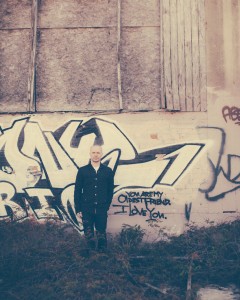 DW: I’ve been kind of choosy – as I’ve made records and then toured those records and then moved on from those records – about what I bring with me in terms of the songs themselves. And I feel like when I get done with a season of touring on a new record, I kind of have a sense by the time the shows are done of which of the songs I’m gonna bring with me. Of the ones that I play regularly, there really aren’t a lot that I’ve gotten sick of playing. Even the ones that I feel like I play a lot, gratefully, are songs that I still feel very connected to. Even a song like “Wedding Dress” that I’ve played a lot of times – I don’t get out of most rooms without playing it – is still so resonant with me. I can’t really think of any songs that I really bristle at having to play, ’cause if I did feel like that, I just wouldn’t play them. But there are songs like “Lover” from my first record, that I play most nights, which I’m just really grateful for. There are songs that show up every so often that you feel like they’re not just a result of your craft. They just come, and you don’t really know from where. And as soon as they show up, you identify them as a little beyond where you are at that moment as a writer and artist. Every so often I’ll get a song like that, where I feel like, well, this is decidedly better than I usually write. “Lover” is one of those. Those verses and the way that the tag – the last line in each verse – turns the meaning of each verse on its head a little bit…I always look forward to playing it. I feel like that was a song in which I wasted fewer words than I waste in most songs. Almost every word has a reason to be there and if I switched it around, it just wouldn’t work the same way.
DW: I’ve been kind of choosy – as I’ve made records and then toured those records and then moved on from those records – about what I bring with me in terms of the songs themselves. And I feel like when I get done with a season of touring on a new record, I kind of have a sense by the time the shows are done of which of the songs I’m gonna bring with me. Of the ones that I play regularly, there really aren’t a lot that I’ve gotten sick of playing. Even the ones that I feel like I play a lot, gratefully, are songs that I still feel very connected to. Even a song like “Wedding Dress” that I’ve played a lot of times – I don’t get out of most rooms without playing it – is still so resonant with me. I can’t really think of any songs that I really bristle at having to play, ’cause if I did feel like that, I just wouldn’t play them. But there are songs like “Lover” from my first record, that I play most nights, which I’m just really grateful for. There are songs that show up every so often that you feel like they’re not just a result of your craft. They just come, and you don’t really know from where. And as soon as they show up, you identify them as a little beyond where you are at that moment as a writer and artist. Every so often I’ll get a song like that, where I feel like, well, this is decidedly better than I usually write. “Lover” is one of those. Those verses and the way that the tag – the last line in each verse – turns the meaning of each verse on its head a little bit…I always look forward to playing it. I feel like that was a song in which I wasted fewer words than I waste in most songs. Almost every word has a reason to be there and if I switched it around, it just wouldn’t work the same way.
AA: And it’s the only one of your songs that has three parts.
DW: That’s true. And the others I’m happy with, but none of them feel to me like that first one.
AA: I’ve heard you say that the word “Christian,” when applied to anything other than a person, is a marketing term. What advice would you have for young musicians – or any artists – who want to use their gifts to glorify God to the best of their ability?
DW: I would say that the job of any artist, regardless of their belief about anything, is to look at the world and tell people what they see. Having said that, everybody, including artists, has a way that they look at the world that helps them make sense of what they see. Everybody has a grid through which they are looking at the world. So, even if it’s the grid of unbelief or the grid of randomness – that there is no design, no intention, no benevolent force behind anything that I can see anywhere – that is the grid through which you are looking at the world that helps you to make sense of, to deal with, and rationalize what you see. And the evidences of that grid, whether you know it or not, will inevitably be mixed into the art that you’re going to make if you’re doing your job right. So, as you’re looking at the world and telling us what you see, whether you acknowledge the grid or not, the fingerprints of that belief and the evidences of that grid are going to be on your art either way.
We need our artists in the church both making art about the grid and making art about what they see when they look through the grid. But the vast majority of what’s being categorized as “Christian art” is about the grid that the artist is looking through. I think that it’s a little bit disproportionate. I think we need more artists looking on through the grid of their belief and telling us what they see and how that grid affects the way they see everything else. I think what happens is that most Christian artists are convinced they must only make art about the grid. And I would try to persuade them that that’s just not true. You’re at liberty to, but you’re not compelled to. Here’s another way to say it: in the late 70s/early 80s, Bob Dylan, who’s probably my favorite singer/songwriter, artist, and musician of all time, went through a conversion to Christianity. And anybody who knows me and knows I love Bob Dylan wants to ask me what I think of the three records he did that are known as his “Christian albums.” My response, typically, is that I am less interested in hearing Bob Dylan sing to me about Christianity as I am interested in hearing a Christian Bob Dylan sing to me about everything else.
AA: Kind of like, it’s more beneficial to be a “musician or artist who is a Christian” than a “Christian musician or artist?”
DW: If that distinction is helpful for people, then yes, I would say that, absolutely. There’s a handful of ways of saying the same thing. T-Bone Burnett, and I think C.S. Lewis before him, said we need artists who make art about the light and we also need artists who make art about what they see illuminated because of the light. So, C.S. Lewis would say, because of Jesus, I see everything differently. So, I would just encourage artists not to be preoccupied with the language or the category of the art they’re making. I would encourage artists just to, as honestly and earnestly as you possibly can, look at the world and tell us what you see. Because the fingerprints of your belief are going to be all over the art you make regardless of your intention about that. Whether you’re intentional about wanting the evidences of your belief and the language of your belief to be all over the art you make, whether or not you’re trying to manufacture that or retrofit that into the art you’re making, it’s going to come out either way. I would almost rather people avoid it and see how it comes out, ’cause it will. And this is true of any artist. You can see the beliefs and values of any artist by looking at the evidences of the grid through which they’re looking when they talk to you about the world they see. You just have to be discerning, but you can see this anywhere. People just can’t hide it. And I’m not encouraging Christian artists to hide it. I’m just saying, even if you did, I’m gonna see it anyway, and it’ll probably be a more honest interpretation or telling of what you believe than your intentional inclusion of it.
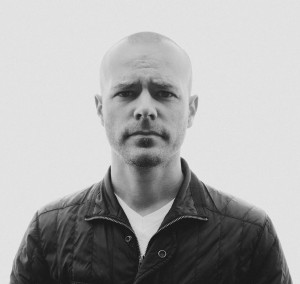 AA: Are there any musicians out there that you’re hoping to one day write an album with or tour with?
AA: Are there any musicians out there that you’re hoping to one day write an album with or tour with?
DW: I’m not super ambitious about what I’m ever going to accomplish with my music. I’m a niche artist. I don’t make music for everybody and I’m completely aware and comfortable with that. I’m never going to be a big mass market, mass success kind of artist. I’m not gunning for that. I’m not working for that. I’m not looking for opportunities that would accomplish that. The people who resonate with what I do and what I say and support me in that, I’m thrilled to have those people. I don’t have a ton of ambition beyond that. I have more ambition for my friends who are artists and trying to bolster their careers. I have more ambition for the ancillary work I do in the business as an entrepreneur running NoiseTrade and things like that. Providing resources for artists to have better and bigger and more successful and more efficient careers. Sure, there are artists I’d love to tour with and work with, but I don’t see that ever happening. I’m really happy doing it the way I’m doing it now.
AA: LIGHTNING ROUND: Three questions, first thing that pops into your head
a) You’re struck with amnesia and can only recall one of your albums. Which do you hope it is?
DW: Ctrl.
AA: b) You’re struck with amnesia and can only remember one book you’ve ever read (you can’t say the Bible)
DW: U2: At the End of the World. Bill Flanagan’s biography on U2, which was written during their phase between The Joshua Tree and Achtung Baby. The most fascinating period for U2’s mythology.
AA: c) Alright, last one. You’re struck with amnesia and can only remember one movie you’ve ever seen.
DW: Wow, why you gotta do this to me? I’m gonna be thinking about this all day.
AA: Well, this is a geek site, after all.
DW: I’m gonna go really left of center and say the original 1971 Willy Wonka & the Chocolate Factory.
AA: Awesome! Out of curiosity, what did you think of the 2005 remake?
DW: I understand that Roald Dahl’s widow prefers it and that it’s closer to the book, but it’s just not half the movie. I just don’t really like it. I think what they did in the 70s with that story in terms of making it into a digestible ninety-minute piece of work, the adjustments they made to the screenplay and to Roald Dahl’s original intention, I think actually improved it for the screen.
AA: Derek, thank you for taking the time.
DW: Thank you, I really appreciate your support.
Alan Atchison is a Contributing Writer to The Rogue. He is a Senior Publications Editor at the Center for the Advanced Study of India (University of Pennsylvania), where he also earned a Masters of Liberal Arts in Creative Writing. He lives in Philadelphia, PA with his wife and two daughters. Follow him on Twitter and Instagram.


